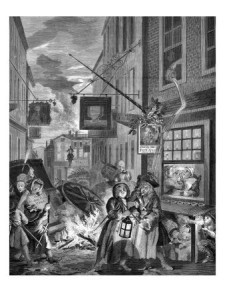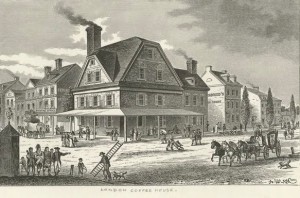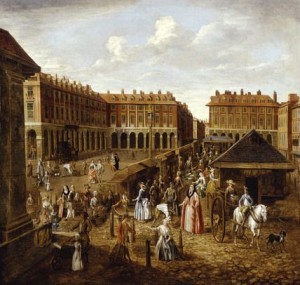Regan Walker and the Smells of the 18th Century
Whoo-hoo! Today I have historical romance author Regan Walker talking about the smells of the 18th Century. I asked for this article! So, I’m super excited about it! Here’s some not so stinky music to enjoy while you read,* and now, here’s Regan!!!
The Smells of 18th Century London
By Regan Walker
My latest novel, To Tame the Wind, is the first I’ve set in the 18th century. It’s the prequel to my Agents of the Crown trilogy and it’s set in 1782 in London, Paris and the waters of the English Channel. I do have several scenes that take place in London: on the London quay, on the Thames and on Oxford Street. I did not wander farther afield to the poorer areas like St. Giles. But all of London in the 18th century had a stench one could not miss. To say it did not smell very good would be an understatement.
There was no sanitation. Water was unpurified and raw sewage ran down city streets in open drains. In the air, there was the famous London fog, smoke from burning coal for heat and the general dirt of the city. And that was only the beginning. 
One traveler, Faujas de St. Fond did not think that the fog or smoke affected the health of the inhabitants:
I am very far from thinking that the city of London is more unhealthy than other cities, because they burn sea coal here. For not only is the contrary proved by experience and a long train of observation; but it is also to be presumed that this immense quantity of fires contributes to its salubrity.
Others found the smell of burning coal something they got used to (though I can’t imagine how). De la Rochefoucauld said of his first days in England,
I was extremely sorry that we had no wood, since it is a long time before one can get warm especially in the feet; but for warming a room coal is much better. Though I found the smell of coal highly disagreeable, I got used to it in a little while, and now that I have been in England for some time, I actually prefer it to wood partly because one is not obliged to attend to it every moment and partly because it gives out more heat.
Added to that, London’s streets were filled with carriages and horses, thus there was the smell of wet horses and their waste. And there were smells contributed by the animal waste of the butchers. C.P. Moritz wrote in 1782: 
Nothing in London makes a more detestable sight than the butchers’ stalls, especially in the neighborhood of the Tower. The guts and other refuse are all thrown on the street and set up an unbearable stink.
Human waste contributed to the stench. Private bathrooms, to be later known as “water closets,” did not exist until late in the century, and even then, they only appeared in the wealthiest of homes. Most London residents used chamber pots, dumping them right outside their windows. (Heaven help you if you happened to be passing by!) The raw sewage would accumulate and stagnate in cesspools until the night soil men came along to clear it out. In darker corners of the city, an occasional human corpse might be found lying about.
Water was delivered to the city’s residents through hollowed-out tree trunks running beneath the streets. Wealthier customers could buy spring water from private companies, but most residents used the sluggish, murky water of the Thames. Like many European rivers, the Thames was both the source of the city’s drinking water and the repository of its discharge. It was also crowded with boats and barges, since it served as the city’s main thoroughfare for commercial shipping. (Lord knows what was dropped over the side.)
Amazingly, the Thames, which was wider and shallower then, was full of a variety of fish, though you might not want to eat it. There were salmon, flounder, eels, shad, sturgeon, trout and lamprey.
In 1771, Tobias Smollet wrote:
If I would drink water, I must quaff the mawkish contents of an open aqueduct, exposed to all manner of defilement, or swallow that which comes from the River Thames, impregnated with all the filth of London and Westminster. Human excrement is the least offensive part of the concrete, which is composed of all the drugs, minerals, and poisons used in mechanics and manufacture, enriched with the putrefying carcasses of beasts and men, and mixed with the scourings of all the wash-tubs, kennels and common sewers within the bills of mortality.
The city’s underground pipes were poorly constructed. Thus, water mains would regularly burst, creating sudden springs on city streets. This flow would mix with all of the city’s debris and pedestrians would have to slosh through it in order to get to their destination.
The coal smoke, mingled with the odor of the city’s decaying garbage, open sewage, decomposing corpses and the stench emanating from the Thames, created such a powerful stink that with a proper wind, London could be smelled from several miles away.
Not surprisingly, London was a breeding ground for bacteria and disease. Epidemics, infections and occasional food shortages led to an extraordinarily high mortality rate. Medicine was still quite primitive. In 1775, more than 800 deaths recorded in the Bills of Mortality were attributed simply to “Teeth.” Lice and dirt were everywhere. Soot and grime covered overcrowded tenements. Disease was rampant, and even the smallest wound could lead to death by infection. Jennifer Wilde (aka Tom Huff) does a great job of describing the state of the city, particularly if you were poor and lived in St. Giles, in his historical romance Once More Miranda.
There was a fear among the population that bathing too frequently was harmful, as was too much fresh air, in part because of airborne diseases like consumption. So windows were often kept tightly shut.
To be transported from the modern world to such a place would be alarming. Perhaps that is why most romance novels do not linger on the full range of London’s odors. But to add some realism, one much include a sampling, and I do.

“A sea adventure like no other, a riveting romance!” NY Times Bestselling author Shirlee Busbee
Paris 1782…AN INNOCENT IS TAKEN
All Claire Donet knew was the world inside the convent walls in Saint-Denis. She had no idea her beloved papa was a pirate. But when he seized Simon Powell’s schooner, the English privateer decided to take the one thing his enemy held most dear… her.
A BATTLE IS JOINEDThe waters between France and England roil with the clashes of Claire’s father and her captor as the last year of the American Revolution rages on the sea, spies lurk in Paris and Claire’s passion for the English captain rises.
Links:
Buy link on Amazon: http://www.amazon.com/Tame-Wind-Agents-Crown-Book-ebook/dp/B00VO4DZYE
Regan’s Website: http://www.reganwalkerauthor.com/
Blog: http://reganromancereview.blogspot.com/
Twitter: @RegansReview (https://twitter.com/RegansReview)
Facebook: http://www.facebook.com/regan.walker.104
Goodreads: http://www.goodreads.com/author/show/6450403.Regan_Walker
*Music composed by Derek & Brandon Fiechter



